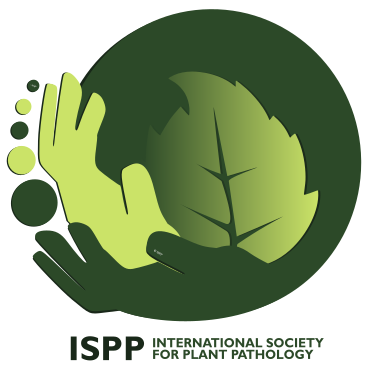|
Names
of Plant Pathogenic Bacteria, 1864-2004
J.M. Young, Landcare
Research, Private Bag 92170, Auckland, New Zealand:
youngj@landcareresearch.co.nz (Convener)
C.T. Bull, US Department
of Agriculture, 1636 E Alisal Street, Salinas, CA 93905, USA:
cbull@pw.ars.usda.gov
S.H. De Boer, Centre for
Animal and Plant Health, 93 Mount Edward Road, Charlottetown, PE C1A
5T1, Canada:
deboers@inspection.gc.ca
G. Firrao, Dipartimento
di Biologia Applicata alla Difesa delle Piante, Universita, via Scienze
208, 33100 Udine, Italy:
firrao@pldef.uniud.it
G.E. Saddler, Scottish
Agricultural Science Agency, 82 Craigs Road, Edinburgh EH12 8NJ,
Scotland:
saddler@sasa.gsi.gov.uk
D.E. Stead, Central
Science Laboratory, Ministry of Agriculture, Fisheries and Food, Sand
Hutton, York, YO4 1LN, United Kingdom:
d.stead@csl.gov.uk
Y. Takikawa, Plant
Pathology Laboratory, Shizuoka University, 836 Ohya, Shizuoka 422,
Japan:
abytaki@agr.shizuoka.ac.jp
This list
contains the names of all plant pathogenic bacteria that have been
effectively and validly published in terms of the
International Code of Nomenclature of Prokaryotes
(�the Code� � hitherto the International Code of Nomenclature of
Bacteria) (Lapage et al. 1992)
and the Standards for
Naming Pathovars (Dye et al. 1980), and their revision (Young
et al. 1991a). Included are species names from the Approved Lists of
Bacterial Names (Skerman et al. 1980), pathovar names listed by
Dye et al. (1980), and names of pathogens reported since 1980.
In recent
years, the taxonomy of plant pathogenic bacteria has been extensively
revised. For several taxa, especially the Enterobacteriaceae,
Pseudomonas syringae van Hall 1902 and Xanthomonas campestris
(Pammel 1895) Dowson 1939, these revisions are incomplete. For some taxa
there are several valid synonyms. The most recent name is used as the
reference name (in bold italic) to which all other synonyms are
referred. This does not mean that the reference name is always to be
preferred. Alternative selections of valid names may be considered to
give a more coherent nomenclature (Young et al. 1996; Young et
al. 2003). Alternative valid names are listed in italic and
cross-referenced to their reference names; synonyms under a reference
name are preceded by '='. Names that are not considered valid are in
italic and enclosed in square brackets '[ ]'. Names published since
1980 that are not considered valid have been included for completeness,
with an explanatory note. A few names that are not valid, published
before 1980, have been included for continuity.
New species combinations are
sometimes proposed in publications without the formal transfer of
pathovars allocated to the species. For continuity, the Committee on
Taxonomy of Plant Pathogenic Bacteria, International Society for Plant
Pathology (the Committee), who are the authors of this paper, has
created the new pathovar combination
Burkholderia gladioli
pv. agaricicola (see below).
Names that have been changed to
accord with correct Latin usage (Tr�per & De Clari 1997; Euz�by 1998)
are listed here with their original spelling also indicated. Since these
corrections were made, the Code has been amended to take account of the
need for stability of names. Names that have been gazetted in the
International Journal of Systematic and
Evolutionary Microbiology
are now the definitive names of the organism,
regardless of orthographic errors in their Latin or Greek declension.
The only exception involves correction of the gender of species epithets
when they are proposed as new combinations (De Vos & Tr�per 2000).
Where names
are published outside the International Journal of Systematic and
Evolutionary Microbiology (previously the International Journal
of Systematic Bacteriology), the reference is to the
validating publication followed by the reference in which the original
description was published. Apparent discrepancies between the
publication dates of some species and their pathovars arise because
pathovars are referred to the original publication but the species are
referred to the validating publication in the International Journal
of Systematic Bacteriology.
Some
pathotype strains were originally so designated on the basis of earlier
recommendation as a type strain (Sneath & Skerman 1966). It has
subsequently been reported that some of these may be unsuitable because
they do not reflect the pathogenic or other characteristics of the
pathovar (Young et al. 1991a). These have been marked with an
asterix '*'. Names reported after this list has been posted will be
published annually in a secondary list at this website. It will be
helpful if those publishing new names would send information to the
Convenor of this Committee.
Revision: 31 December 2004
Abbreviations of Culture
Collections
| ATTC |
American Type Culture
Collection, Manassas, Box 1549, Virginia 20108, USA |
| CBS |
Centralbureau voor Schimmelcultures, Oosterstraat 1, 3740 AG Baarn, The
Netherlands |
| CFBP |
Collection
Francaise de Bactéries Phytopathogens, ,
Unit de Pathologie Vegetale,
Institut National de la Recherche Agronomique, 49071 Angers, France |
| DSMZ |
Leibniz Institute DSMZ - German Collection of
Microorganisms and Cell Cultures; Inhoffenstr. 7b 38124
Braunschweig Germany. |
| HAMBI |
HAMBI Culture Collection, Department of Applied Chemistry
and Microbiology, Box
56, 00014 University of Helsinki, Finland |
| ICMP |
International Collection of Micro-organisms from Plants, Landcare
Research, Private Bag 92170, Auckland, New Zealand |
| LMG |
Collection
of the Laboratorium voor Microbiologie en Microbiele Genetica,
Rijksuniversiteit, Ledeganckstraat 35, B-9000 Gent, Belgium |
| NCPPB |
National Collection of Plant Pathogenic Bacteria, Central Science
Laboratory, Ministry of Agriculture, Fisheries and Food, Sand Hutton,
York, YO4 1LW, England |
| NRRL |
Agricultural Research Service Culture Collection, Peoria, Illinois, USA |
Names:
Version
of list to print |

